After my hoop dreams faded
— A PGC Grad Story —
By David Dean (PGC Grad)
I have loved basketball since I can remember. I went to high school at Sandy Spring Friends School in Maryland. I was a late bloomer and entered 9th grade at 4 foot 11. I was fortunate that I went to a smaller school because it allowed me to develop as a player—elsewhere I might have been cut early and given up. I ended up captaining our team as a senior and got the chance to continue playing at Guilford College, a Division III school in North Carolina.
I was a player who loved taking charges, locking people up on defense, and motivating my teammates. I always tried to create a team culture where people played out of a love for one another and were comfortable being their full selves, free from the hyper-masculine individualism common in men’s athletics.
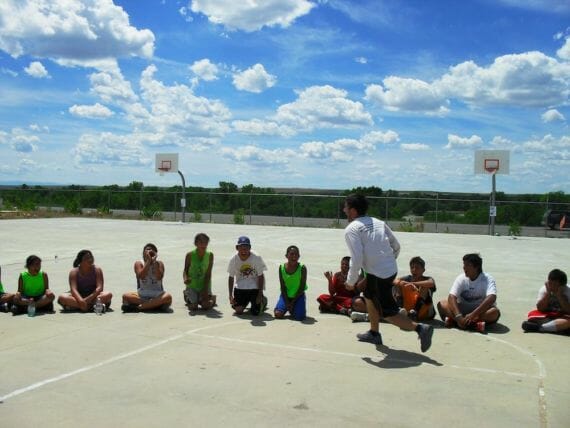
In the summer of 2009, just before I began college, I attended the PGC Essentials course (now Playmaker College basketball camp) and it validated all the things about the game that were so important to me.
I not only learned a lot of X’s and O’s, but I felt a sense of joy and belonging playing the game of basketball, unlike any I had experienced before. When I got home from camp, I quickly typed up all 40 pages of my notes and then made a deal with my parents that would allow me to go to another session. They had a big storage unit of boxes and old family furniture that was now costing them something like $250 a month but they couldn’t find the time and energy to move everything out of it. If they would let me go back to PGC, this time the Think the Game course, I told them I would take a few days to get everything out of there and figure out what to do with it all, ultimately saving them money in the long run. They agreed.
A week or two later, I was back at PGC, back in this other world of basketball positivity. I remember Dena Evans’ talk on mental toughness. I remember all this deep wisdom about controlling momentum in games. I remember feeling so valued for what I brought to the game when I was chosen as one of the top SCHAPEers in the camp that week. And I remember how powerful I felt after learning all these skills that allowed me to play with the tenacity and strength I needed as a smaller point guard.
I was one of the last players on the roster during my freshman year at Guilford, but still learned a lot as a member of a team that reached the DIII Final Four. The next year I transferred to Dickinson College in Pennsylvania, a little closer to home, and after a long pre-season, was cut from the team. It was rough. I felt numb for a while. It was like going through an identity crisis. But ultimately it allowed me to explore parts of myself I hadn’t yet tapped into, which was a gift.
During college I became friends with a student who was from the Crow Reservation, an Indigenous community in southeastern Montana, whose mother ran an organization there called The Center Pole. After I stopped playing, all of us began discussing the possibility of starting a summer program that would integrate basketball (an incredibly popular sport in Native communities) with a youth activism curriculum. I went on to coordinate this program as part of The Center Pole and under the guidance of local elders for five summers. We called it Unity Hoops. In the mornings, students would do basketball training. In the afternoons, they worked on “community action projects”— where they came together as teams to study the root causes of specific forms of injustice faced by their community, develop plans of action to address them, and carry out those plans together. We continually highlighted how the dedication, critical thinking, and teamwork necessary for success on the court was also essential within any collective effort to create social change.
Doing all of this at a young age was hard work. I don’t know if it would have been possible without having had PGC as a model of a comprehensive program that tied basketball to life in such a powerful way.
As one of the few white folks working in this community (and as a staff member with other people of color-led racial justice organizations during my early-to-mid-twenties), I had to learn a lot about the past and present realities of racism and colonialism in the United States, and I had to figure out what my own role was as a white person in efforts to address them. Now, some years later, I am the Associate Director of a racial and economic justice political education organization called White Awake. We lead trainings year-round to support white folks to cultivate the emotional strength and political clarity needed to participate effectively in multiracial movements for change. And we help organizers and activists understand how racism has for centuries been used as a tool of the wealthy and powerful to divide and conquer, preventing working people of all colors from coming together to create the society that all of us need.
Point Guard College taught me that success in basketball requires intentional study and dedication to our individual crafts, as well as a group ethic of solidarity—the shared knowledge that we need each other and that we must stand alongside our teammates with love, humility, unrelenting support, and fierce purpose. I’ve often dreamt of what might be possible if we could get millions of people to channel those same values into broader movements for transformative social, economic, and political change. After our hoop dreams fade, my hope is that more and more of us can grab hold of this bigger dream and pursue it for the long haul.
I just turned 30 and am still playing basketball as much as I can. Twelve years after PGC, my go-to move continues to be the scrizzle.
Related Articles
Athlete Story | Annie Dawson
Over the years I watched my teammates get better at a much faster pace than me and that was really hard. It was a huge blow to my confidence. I knew something had to change.
Athlete Story | Hailey Morris
I never imagined that one simple game could change the trajectory of my life…
Athlete Story | Tanyr Sornson
My biggest struggle really was not knowing how to protect my confidence, which made it impossible for me to have any ounce of confidence in my shot or my abilities.
About PGC
PGC Basketball provides intense, no-nonsense basketball training for players and coaches. Our basketball camps are designed to teach players of all positions to play smart basketball, be coaches on the court, and be leaders in practices, games and in everyday life.
We combine our unique PGC culture with a variety of teaching methods and learning environments to maximize the learning potential of those that attend our sessions. In addition to spending 6-7 hours on the court each day, lessons will be reinforced through classroom sessions and video analysis.
Our goal at PGC is to empower you with the tools to fulfill your basketball dreams, while also assisting you in experiencing the joy of the journey.
To learn more about PGC Basketball, including additional basketball training tips and videos, visit our YouTube Channel or find us on Facebook, Instagram, and Twitter.

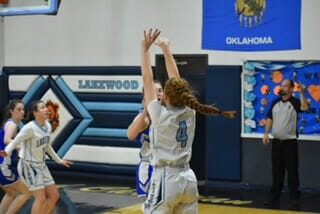
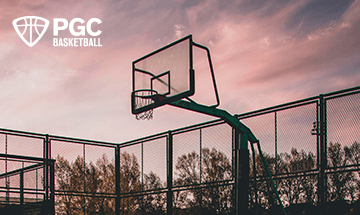
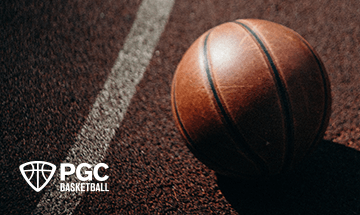


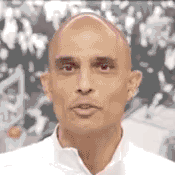






Share This Post